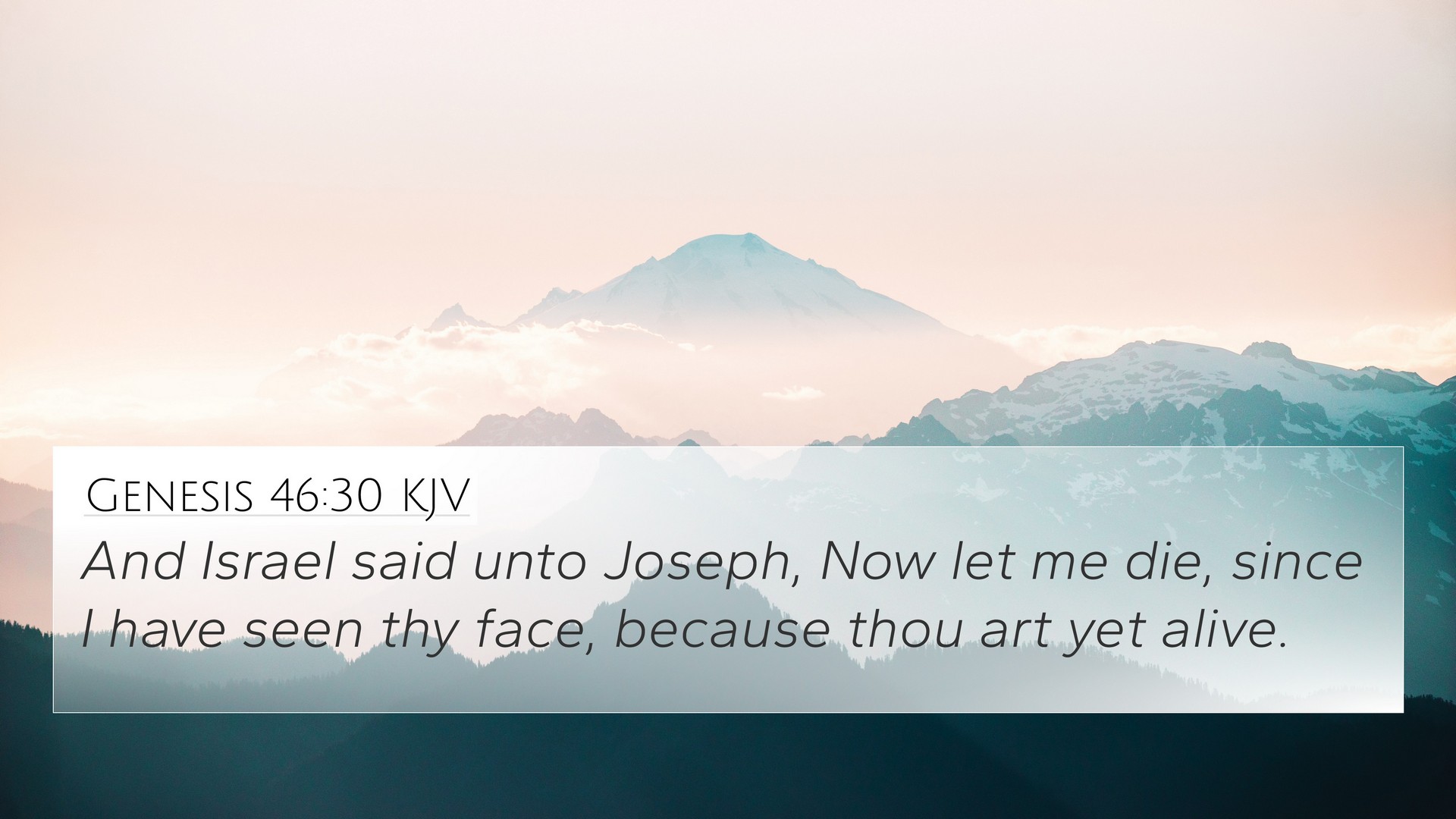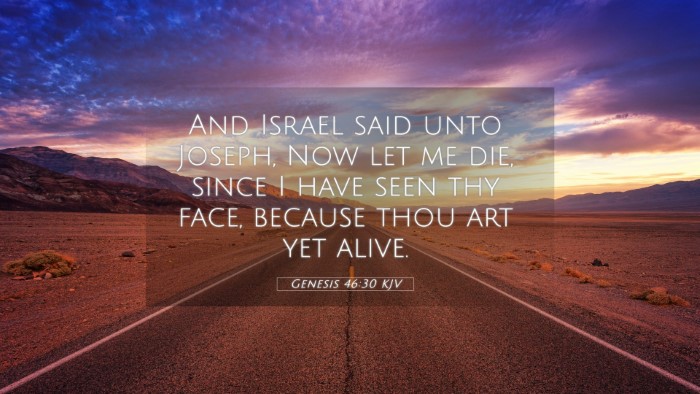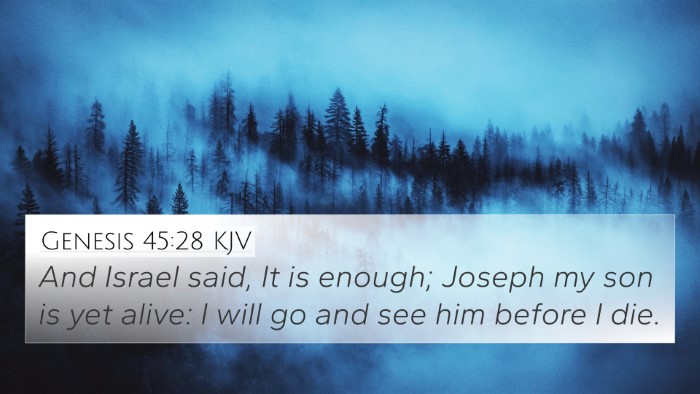Understanding Genesis 46:30
Genesis 46:30 (KJV) states, "And Israel said unto Joseph, Now let me die, since I have seen thy face, because thou art yet alive."
Summary of Genesis 46:30
This verse marks a significant moment of emotional culmination for Jacob (Israel) upon reuniting with his son Joseph. The heartfelt declaration signifies Jacob's relief and fulfillment at seeing Joseph alive, believing he can now die in peace.
Commentary Insights
- Matthew Henry: Henry emphasizes the depth of Jacob's grief and his longstanding sorrow concerning Joseph’s presumed death. He interprets Jacob's words as reflecting a culmination of his life's trials, where the sight of Joseph acts as the central point of joy amidst sorrow.
- Albert Barnes: Barnes notes the profound familial connection revealed in this verse. He draws attention to the fact that once Jacob sees Joseph, he feels a profound sense of completion. Barnes' commentary provides insights into Jacob’s character, portraying him as a man shaped by love, loss, and faith.
- Adam Clarke: Clarke expands on the emotional significance of this reunion, pointing out that Jacob’s statement reflects the concept of living for relationships. He also discusses the weight of familial bonds and how they impact our lives.
Emotional and Theological Themes
The themes of reunion, joy amidst suffering, and the ending of a grieving era are central in this verse. Theologically, this moment demonstrates God’s providence and the restoration of family ties, representing hope and continuity.
Related Bible Cross-References
- Genesis 37:31-35: The account of Jacob's grief over Joseph's supposed death establishes the emotional backdrop to Genesis 46:30.
- Genesis 45:28: Joseph's revelations and Jacob's initial reaction to the news serve as a precursor to this reunion.
- Psalms 126:5-6: This passage speaks to the concept of reaping joy from sorrow, resonating with Jacob’s feelings at this moment.
- Isaiah 46:4: God speaks of sustaining His people, paralleling Jacob's experience of divine providence through Joseph's survival.
- Luke 2:29-30: Simeon’s declaration upon seeing Jesus echoes Jacob’s sentiments, showcasing the completion of a life’s journey upon seeing the fulfillment of promises.
- Romans 8:28: The idea that God works all things together for good aligns with the theme of Jacob’s previously painful experiences leading to this moment.
- Hebrews 11:21: Jacob's faith in the context of the familial lineage ties back to his remarks upon seeing Joseph.
- 1 John 1:3: The emphasis on fellowship among family can be associated with the intimate connection Jacob expresses when seeing Joseph.
- Matthew 18:19-20: Biblical precedent for the significance of relationships is highlighted, similar to the bond between Jacob and Joseph.
- John 11:25-26: This verse about resurrection and life brings a theological reflection upon the themes of hope inherent in Jacob’s declaration about Joseph.
Conclusion
Genesis 46:30 encapsulates a pivotal moment in the narrative of Jacob’s life, highlighting the transformational power of reunion and faith. In exploring related themes and the interconnectedness of various scripture, one can delve deeply into the rich tapestry of biblical theology regarding family and divine providence.




